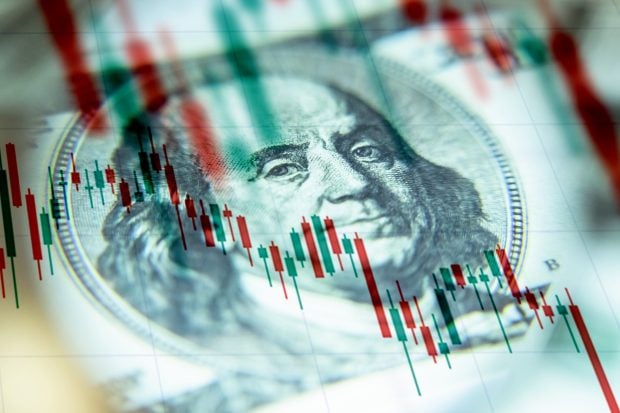Despite all the action in Washington these days, there should bea lot of movement and excitement in Houston this Sunday when theNew England Patriots take on the Atlanta Falcons in Super BowlLI.
|The Patriots represent the American Football Conference (AFC),while the Falcons are part of the National Football Conference(NFC).
|Some football fans and stock-market watchers claims the DowJones industrial average moves up when a team from the originalNational Football League triumphs — meaning a Falcons win is goodnews for equities.
|Likewise, when an original American Football League team wins,the Dow Jones Industrial Average drops — so a Patriots victory isbad news for stocks. (The Dow was trading around 20,050 onFriday.)
|“We would be the first to admit that this [Super Bowl] indicatorhas no connection to the stock market, [and] the relationship israndom. But there is also no arguing that the Dow has performedbetter when NFC teams have won over the past 50 years,” said RyanDetrick, senior market strategist for LPL Financial, in a report onFriday.
|That's good news for Falcons fans (and Tom Brady haters.)
|More Analysis
|Another and simpler way to look at the Super Bowl indicator,Detrick says, is to look at the average gain for the Dow after theNFC wins vs. the AFC — and ignore the history of thefranchises.
|Using this analysis, equities trading on the Dow has had anaverage price return of 10.9% when the NFC wins compared with just4.3% with an AFC winner, he points out.
|Put differently, an NFC winner is tied to positive returns 82%of the time; the Dow has been up only 61% of the time when thewinner comes from the AFC.
|Brady, Patriots Bashing
|“The New England Patriots have an even worse record for marketsthan the AFC as a whole,” the LPL strategist explained.
|In the eight previous Super Bowls when thePatriots played, the Dow has been up for the full year exactly 50%of the time — with an average gain of only 0.3%.
|When the Patriots won, the Dow had an average loss of 4.1%.(This is the average for 2002, 2004, 2005 and 2015.)
|“Those who love Tom Brady will be glad to see him starting inhis record seventh Super Bowl, but those who don't will beinterested to note that markets have actually fallen for the fullyear 67% of the time” in the four out of six Super Bowls he hasstarted as the Patriots quarterback — with an average loss of 7.2%,according to Detrick.
|To be fair, he points out, two of the years when the Patriotsplayed in the Super Bowl were “extreme outliers.”
|In 2002, the Dow had its largest decline, 17%, since 1977. In2008, it dropped a whopping 34%, which was the largest fall sincethe Great Depression. “Even the most ardent Patriots detractorscan't realistically fault [quarterback] Tom Brady or [coach] BillBelichick for the financial crisis,” the LPL strategist said.
|Falcons' Time?
|With these statistical trends in mind, advisors and investors“should be rooting for the NFC's Atlanta Falcons (though LPLemployees in the Boston home office may disagree),” Detricksays.
|And it's worth noting that Falcons' quarterback Matt Ryan playedfor Boston College.
|“As an expansion team in the NFC, an Atlanta victory would pointtoward a positive and above-average year for the Dow, while thePatriots, an original AFL team that morphed into the AFC, wouldsignal a down year and below-average returns,” he explained.
|On the serious side, LPL's research team wants to make it clearthat it does not believe “that sports scores influencemarkets.”
|On a lighter note, Detrick and colleagues hope everyone enjoysSunday's game and festivities and can “wake up” for more marketmayhem on Monday.
Complete your profile to continue reading and get FREE access to CUTimes.com, part of your ALM digital membership.
Your access to unlimited CUTimes.com content isn’t changing.
Once you are an ALM digital member, you’ll receive:
- Critical CUTimes.com information including comprehensive product and service provider listings via the Marketplace Directory, CU Careers, resources from industry leaders, webcasts, and breaking news, analysis and more with our informative Newsletters.
- Exclusive discounts on ALM and CU Times events.
- Access to other award-winning ALM websites including Law.com and GlobeSt.com.
Already have an account? Sign In
© 2024 ALM Global, LLC, All Rights Reserved. Request academic re-use from www.copyright.com. All other uses, submit a request to [email protected]. For more information visit Asset & Logo Licensing.









